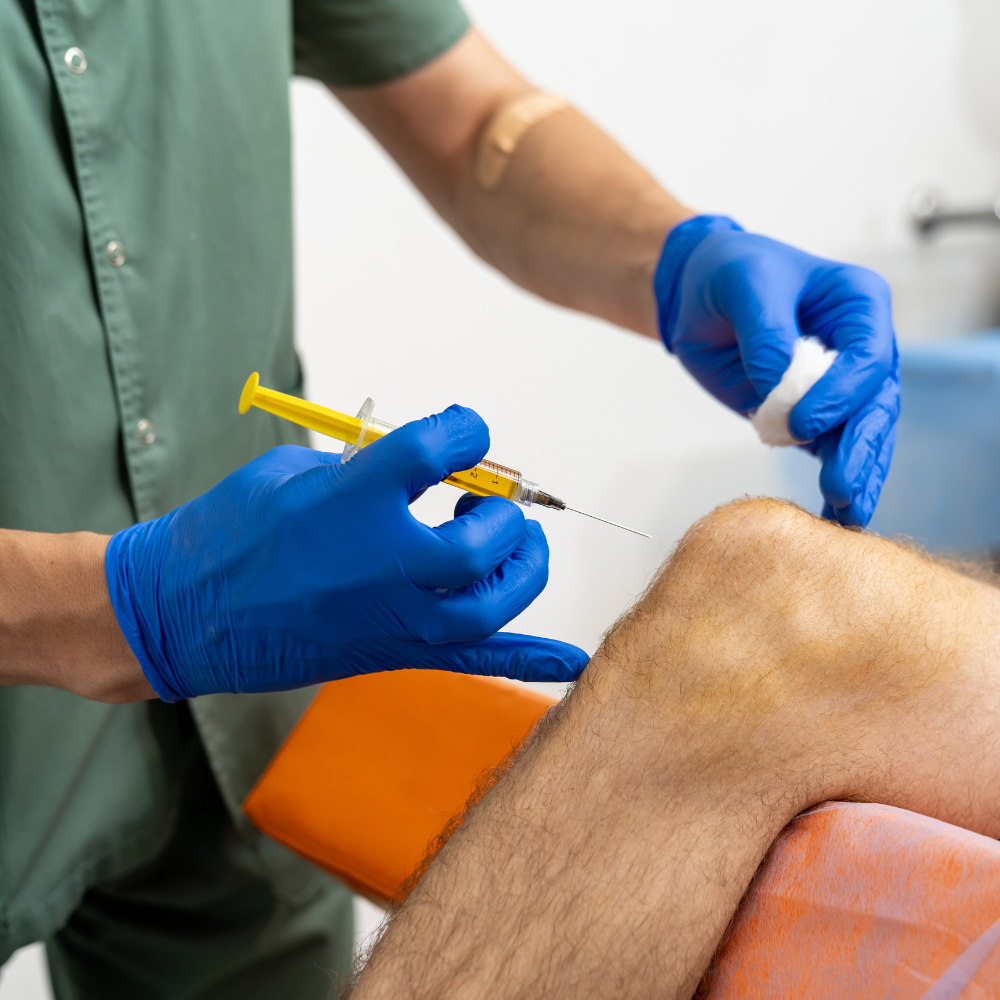Plasma Injection Therapy
Plasma Injection treatments are becoming a more popular option for giving a biological boost to the healing process
Plasma injection treatments have received significant attention from the media and have been used by numerous professional athletes.
Positive outcomes of Plasma injections result from the properties of the therapy including activation of macrophages, wound healing, collagen production, cellular differentiation, vasodilation, and improved vascularization
What is the Process Like for Plasma Injections?
Plasma is produced from a person’s own blood.
It is a concentration of one type of cell, known as platelets, which circulate through the blood and are critical for blood clotting. Platelets and the liquid plasma portion of the blood contain many factors that are essential for the cell recruitment, multiplication and specialization that are required for healing.
After a blood sample is obtained, the blood is put into a centrifuge.
A centrifuge is a tool that separates the blood into its many components. Plasma can then be collected and treated before it is delivered to an injured area of bone or soft tissue, such as a tendon or ligament.
Plasma is given to patients through an injection.
After the injection, a patient must avoid exercise for a short period of time before beginning a rehabilitation exercise program.
Key Points to Remember
Plasma injection treatment comes from a patient’s own blood.
Plasma injections are concentrated source of growth factors and cellular signaling factors that play a significant role in the biology of healing.
Basic science studies show that Plasma injection treatment may improve healing in many tissues.
Anti-inflammatory medicines should be stopped before and after Plasma injection treatment is given.
Frequently Asked Questions
What Conditions Can Plasma Injections Treat?
Plasma injection therapy involves the injection of concentrated platelets, autologous growth factors, and secretory proteins into the region of interest. In interventional pain management, Plasma injections are commonly used for acute and chronic conditions such as tendinopathy, tendonosis, muscle strain, muscle fibrosis, ligamentous injury, arthritis, arthrofibrosis, articular cartilage defects, meniscal injury, and chronic synovitis or joint inflammation in areas such as the knees, hips, and shoulder joints. Numerous medical studies have shown the ability of Plasma injections to heal injured tissues.
What are the Concerns Involving Plasma Injection Treatment?
The side effects of Plasma injections are very limited as the plasma injection is produced using an individual’s own blood. Some relative rest is needed immediately following the procedure, then usually followed by a progressive stretching and strengthening program.
It is important to note that all anti-inflammatory medications should be stopped at the time of Plasma injection treatment in order to allow for the natural inflammation process to occur in the body.

